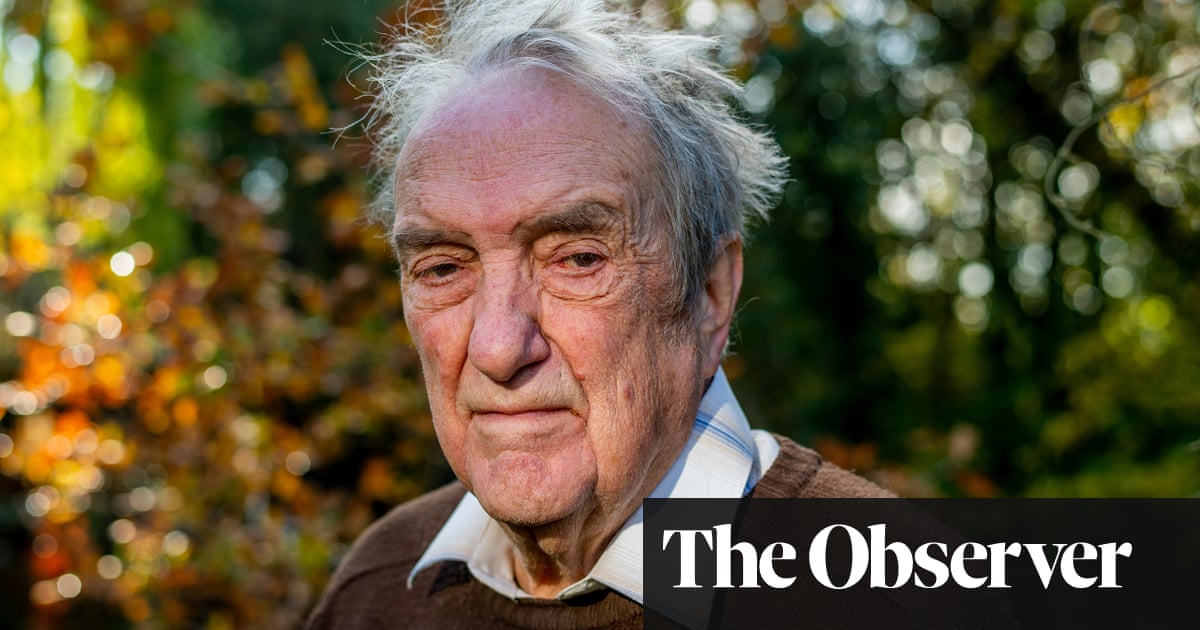
For generations of British fans, Murray Walker, who died on Saturday at the age of 97, was, quite simply, the voice of Formula One.
The affection with which he was held by the paddock and across the sport rose from an enthusiasm and often overlooked a dedication to his craft that has rarely been matched in any discipline. Few commentators come to truly epitomise their subject, but over Walker’s 23 years of bringing F1 to the nation he was acknowledged as a true great, and a unique talent.
Walker first commentated on F1 full-time in 1978 for the BBC. His excitable, enthusiastic style quickly became his trademark. Clive James famously referred to him as talking like a man “whose trousers were on fire”. Yet his effervescence was the product of a genuine love for the sport and his desire to convey the passion he felt to fans. He succeeded beyond compare.
Walker served in the army in the second world war and then extensively commentated on motorsport while also pursuing a successful career in advertising, working on accounts including Weetabix, Mars, Vauxhall and Embassy cigarettes. Over a stellar career covering racing he interviewed the greats of the sport, including Enzo Ferrari, Juan Manuel Fangio, Michael Schumacher and Ayrton Senna.
He was in the right place at the right time to make his mark in F1 in the early eighties as Bernie Ecclestone began building the sport into the global sporting powerhouse it is today. Walker brought this exponentially increasing audience with him. In a sport that can often be bewilderingly complex and arcane, Walker wanted to make the action appeal in the most graphic way possible, his descriptions exaggerated, often dramatically portentous and subsequently gripping, even to the uninitiated viewer.
There was no sense this was the off-putting hyperbole of much modern commentary, but an honest reflection of his passion.
This was no accident: Walker had consciously come to take this approach. “I always regarded it as my brief not just to inform but to entertain,” he said after his retirement in 2001.
“F1 is very complex, and it was my job to try to pull all the different strands together in an entertaining way. And I knew that 95% of my audience weren’t interested in the diameter of the gudgeon pin. What they wanted was to share the excitement that I was lucky enough to be witnessing.”
The excitement often led to mistakes or malapropisms. Observations such as: “The battle is well and truly on if it wasn’t on before, and it certainly was” endeared him to the public even more. But a consummate professional, Walker worked meticulously hard in preparing for races and being on top of his game.
“I would far rather go down in posterity as someone who entertainingly knew what he was talking about, than a bumbling idiot who continually opened his mouth and put his foot in it,” he said. “But the truth is that very few of the ‘mistakes’ people accused me of were factual errors, because I worked extremely hard to get my facts right. They were slips of the tongue, inversions of words, malapropisms, or simply my way of saying things.”
They were more than forgivable, especially since Walker always judged his tone to suit the occasion, from recognising the gravity of Senna’s crash at Imola in 1994 to his genuine, heartfelt reaction to Damon Hill coming in to take the title at Japan in 1996, when he admitted: “I’ve got to stop, because I have a lump in my throat”.
He was paired by the BBC with James Hunt in 1980. The two could not have been more different, with Hunt’s hard-living lifestyle a far cry from Walker’s character. Yet they built a mutual respect and worked brilliantly together. He went on to work just as well with Jonathan Palmer and then at ITV with Martin Brundle.
He was honest, humorous and approachable, just as his commentary style suggested. When he retired in 2001 aged 77 there was a gaping hole in the sport’s coverage. At Walker’s final British Grand Prix behind the mic, Silverstone was festooned with affectionate banners bidding him farewell – evidence of how he had touched so many fans for so long.
They honoured the man known to everyone simply as Murray – a name now for ever synonymous with F1.
Walker is survived by his wife, Elizabeth.












